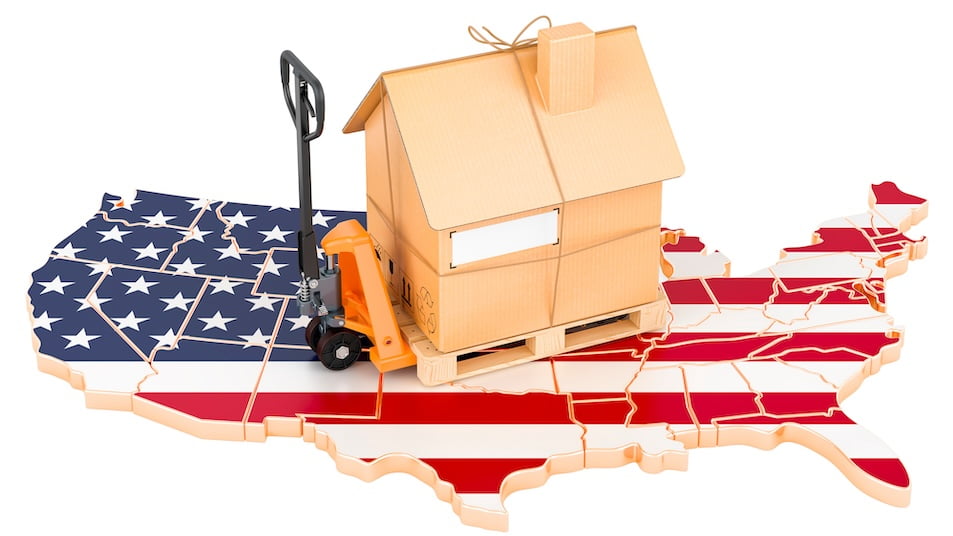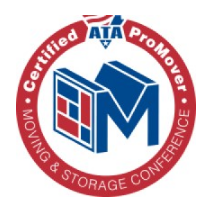Cross-Country Furniture Moving Costs: Estimate Your Budget

Relocating furniture across the country can be a complex undertaking, involving logistical considerations and potential financial implications. Understanding the costs involved is crucial for anyone planning a long-distance move, whether it’s from New York to Los Angeles or anywhere in between.
The price tag for relocating your belongings can vary significantly, ranging from $2,000 to $15,000. This wide range depends on factors such as distance, furniture volume, and your chosen moving method.
Considering these factors and making informed decisions can lead to substantial savings without compromising the safety of your cherished possessions.
From professional moving services to DIY options, each choice comes with its own set of pros, cons, and price points.
By exploring the factors that influence moving costs and comparing various relocation strategies, you can develop a clear budget and potentially reduce expenses for your cross-country furniture move.
Let’s explore the essentials of cross-country furniture moving costs to help you make the best decision for your upcoming relocation.
Factors Influencing Cross-Country Furniture Moving Costs
Understanding the key factors that affect the cost of moving furniture across the country is essential for budgeting and planning. These elements can significantly impact your final moving expenses, so it’s crucial to consider each one carefully.
Distance and Location
The distance between your current home and your destination plays a pivotal role in determining the cost of your long-distance moving project. Location factors, including regional differences, can also influence pricing.
Impact of Mileage on Pricing
Longer distances typically result in higher moving costs due to:
- Increased fuel consumption
- More labor hours
- Potential overnight accommodations for the moving crew
Most moving companies calculate prices based on a per-mile rate, which can range from $0.50 to $0.80 per mile for long-distance moves.
Regional Cost Variations
Moving costs can vary significantly between different regions of the country. Several factors contribute to these variations:
- Local labor rates
- Fuel prices
- Competition among moving companies
Volume and Weight of Furniture
The amount and weight of your furniture directly impact moving costs. Larger homes with more items typically require bigger trucks and more labor, resulting in higher expenses.
Timing of the Move
The time to relocate can significantly affect your moving costs. Careful planning of your move date can lead to substantial savings.
Peak vs. Off-Peak Seasons
Moving during peak seasons (typically summer months and holidays) often comes with premium prices due to high demand. Scheduling your move during off-peak seasons can result in lower costs and more flexible scheduling options.
Weekday vs. Weekend Moves
Weekday moves are generally less expensive than weekend moves. Many moving companies offer lower rates for moves scheduled during the middle of the week when demand is lower.
Additional Services Required
Extra services can add to your moving costs but may be necessary depending on your specific needs and circumstances.
Packing and Unpacking
Professional packing services can save time and ensure the safety of your belongings but will increase your overall moving expenses. Opting to pack yourself can lead to significant savings.
Special Handling for Fragile Items
Delicate items such as antiques, artwork, or musical instruments may require special packing materials and handling techniques, which can increase your moving costs.
Accessibility at Origin and Destination
The ease of access to your current home and new residence can affect moving costs. Factors that may result in additional charges include:
- Narrow streets
- Multiple flights of stairs
- Long distances from the moving truck to the door
Insurance Coverage Options
Selecting appropriate insurance coverage for your belongings during the move is crucial. While basic coverage is often included, additional protection may be necessary for valuable items, potentially increasing your overall moving expenses.
How Much Does It Cost to Move Furniture Across Country: Complete Cost Breakdown
Moving furniture across country typically costs between $2,500 to $11,000, depending on various factors such as distance, volume, and service level. For most households, the average cost falls around $4,500 for a 2-3 bedroom home moving 2,000 miles. These costs represent full-service moving companies handling all aspects of the relocation, including loading, transportation, and unloading.
Understanding cross-country moving costs requires breaking down the pricing structure used by moving companies. Most movers calculate long-distance rates based on a combination of weight (or volume) and mileage. For example, you might pay between $0.50 to $0.80 per pound for a cross-country move. This means a 5,000-pound household shipment could cost between $2,500 to $4,000 for transportation alone.
The type of service you choose significantly impacts the final cost. Full-service moves typically cost 2-3 times more than DIY options, but provide comprehensive assistance. A cross-country move using a rental truck might cost $1,500 to $3,000, while portable containers average $3,000 to $5,000. However, these DIY options require significant personal effort and time investment.
Detailed Cost Breakdown by Home Size
Studio and one-bedroom apartments typically cost $1,500 to $3,500 for cross-country moves, assuming 2,000-3,000 pounds of furniture and belongings. Two to three-bedroom homes range from $3,500 to $7,000, with weight typically between 5,000-8,000 pounds. Larger homes with four or more bedrooms can expect costs from $7,000 to $11,000 or more, depending on the volume of items being moved.
Regional Price Variations
Costs vary significantly based on origin and destination cities. Moving from major metropolitan areas often costs 20-30% more than moves from smaller cities. For example, moving from New York to Los Angeles typically costs 15-25% more than moving between mid-sized cities due to higher labor rates and logistics challenges in urban areas.
Understanding the average cost ranges for different home sizes can help you budget effectively when planning a cross-country move. While these estimates provide a general idea of what to expect, keep in mind that actual costs may vary based on specific circumstances and services required.
Studio Apartment To One-Bedroom Home
Moving furniture from a studio or one-bedroom home across the country typically costs between $1,500 and $3,500. This range accounts for the relatively small volume of belongings and assumes a standard set of furniture and household items.
Two To Three-Bedroom Home
For a two to three-bedroom home, cross-country moving costs generally fall between $3,500 and $7,000. This estimate reflects the increased volume of furniture and possessions typically found in larger living spaces.
Four-Bedroom Home And Larger
Larger homes with four or more bedrooms can expect moving costs ranging from $6,500 to $12,000 or more. The substantial increase is due to the greater volume of furniture and the potential need for multiple trucks or trips.
Cost Per Mile Estimates
Many moving companies use a per-mile rate to calculate long-distance moving costs. On average, you can expect to pay between $0.50 and $0.80 per mile for cross-country moves. It’s worth noting that rates may potentially decrease for longer distances.
Regional Cost Comparisons
Moving costs can vary significantly depending on the origin and destination regions. Here are some factors to consider:
- Moves between major metropolitan areas on the East and West coasts tend to be more expensive than moves between Midwestern states.
- Coastal cities often have higher living costs, which can translate to increased moving expenses.
- Relocations to or from areas with lower costs of living may result in more affordable moving prices.
When moving interstate, it’s crucial to factor in these regional differences to get a more accurate estimate of your potential moving costs.
Professional Moving Services Vs. DIY Options
Choosing between professional services and do-it-yourself options for your cross-country move can significantly impact your experience and budget. Let’s explore the various approaches to help you make an informed decision.
Full-Service Moving Companies
Full-service movers provide a complete solution for those prioritizing convenience and peace of mind. These professionals handle every aspect of your move, from packing to transportation and unpacking.
Pros And Cons
- Pros:
- Professional expertise ensures proper handling of your belongings
- Significant time savings, allowing you to focus on other aspects of your move
- Reduced physical strain and stress
- Cons:
- Higher costs compared to other options
- Less control over the moving process
For a detailed comparison to help you decide, consider comparing self-service and full-service movers.
Average Cost Range
Full-service cross-country moves typically cost between $4,000 and $9,000. This range varies based on factors such as home size and distance. Keep in mind that reliable furniture movers may charge additional fees for specialty items or extra services.
Self-Pack And Ship Services
Self-pack and ship services offer a middle ground, combining cost savings with professional transportation. You handle the packing, while the company takes care of the shipping.
Pros And Cons
- Pros:
- Cost savings compared to full-service options
- Less physical labor than complete DIY moves
- Cons:
- Time-consuming packing process
- Potential risks if items are not properly secured
Average Cost Range
Expect to pay between $2,500 and $6,000 for a cross-country move using self-pack and ship services. The final cost depends on your belongings’ volume and any additional services you choose.
Rental Truck Options
Renting a truck and driving it yourself often proves to be the most budget-friendly choice for cross-country relocations. To plan effectively, it’s crucial to understand the costs associated with moving trucks.
Pros And Cons
- Pros:
- Significant cost savings
- Complete control over the moving process and timeline
- Cons:
- Physical labor required for loading and unloading
- Potential stress from long-distance driving
- Additional expenses like fuel and lodging
Average Cost Range
Rental truck costs for cross-country moves typically range from $1,500 to $4,000, including fuel and other travel expenses. Factors influencing the price include truck size, distance, and rental duration.
Portable Moving Containers
Portable containers offer a flexible solution, allowing you to pack at your own pace while professionals handle the transportation. This option strikes a balance between full-service movers and rental trucks.
Pros And Cons
- Pros:
- Convenience and flexible loading/unloading times
- Potential for temporary storage
- Less stressful than driving a rental truck long-distance
- Cons:
- Limited container sizes may not suit all needs
- Requires suitable parking area for the container
Average Cost Range
Cross-country moves using portable containers generally cost between $2,000 and $5,000. The final price depends on factors such as container size, distance, and duration of use or storage.
When planning your cross-country move, carefully consider these options in light of your budget, time constraints, and personal preferences. Remember, the top interstate movers can provide valuable insights and competitive quotes to help you make the best choice for your unique situation.
Hidden Costs And Additional Expenses To Consider
Planning a cross-country move involves more than just the obvious expenses. Let’s explore some often-overlooked costs that can significantly impact your budget.
Packing Materials And Supplies
Protecting your belongings during a long-distance journey requires quality packing materials. These essentials can add up quickly:
- Boxes
- Bubble wrap
- Packing paper
- Tape
The cost for these items can potentially reach hundreds of dollars. To optimize your use of materials and potentially reduce costs, consider essential packing tips for moves.
Storage Fees
Temporary storage might become necessary during your move. Factors affecting storage costs include:
- Size of the unit
- Location
- Duration of storage
Monthly fees typically range from $50 to $300. It’s wise to factor in these costs if your new home isn’t ready or you need to declutter before moving.
Valuation Coverage And Insurance
Basic liability coverage provided by movers may not suffice for valuable items. For extensive protection, consider:
-
- Additional valuation coverage
- Third-party insurance
These options usually cost 1-2% of your belongings’ total value. While it’s an extra expense, it provides invaluable peace of mind for your cross-country move.
Gratuities For Movers
Tipping movers is a customary practice that should be included in your budget. Here are some guidelines:
- $4-$5 per hour per mover
- 5-10% of the total moving cost for exceptional service
- For a cross-country move, gratuities can amount to several hundred dollars.
Travel Expenses For DIY Moves
If you’re considering a DIY move, remember to account for travel expenses:
- Fuel costs
- Meals
- Lodging
These expenses can easily add $500 to $1,500 to your moving costs, depending on the distance and duration of your journey.
Potential Fees For Difficult Access
Movers may charge extra for challenging situations such as:
- Narrow streets
- Multiple flights of stairs
- Long distances from the truck to your door
These fees typically range from $75 to $300. To avoid surprises on moving day, discuss potential access issues with your movers in advance.
By considering these hidden costs and additional expenses, you’ll be better prepared for your cross-country moving cost. Remember, thorough planning is key to a smooth and budget-friendly relocation.
Tips For Reducing Cross-Country Furniture Moving Costs
Moving across the country can be a costly endeavor, but with careful planning and smart strategies, you can significantly reduce your expenses. Let’s explore some effective ways to keep your moving costs in check without compromising the safety of your belongings.
Decluttering And Downsizing Before The Move
Take a critical look at your possessions before packing. Sell, donate, or discard items you no longer need or use. This process not only lightens your load but also reduces moving costs.
- Host a garage sale or sell items online
- Donate usable goods to local charities
- Recycle or dispose of items responsibly
Remember, fewer items mean lower moving costs and a fresh start in your new home.
Comparing Multiple Quotes
Don’t settle for the first estimate you receive. Obtain quotes from at least three different moving companies to compare prices and services.
- Request detailed, written estimates
- Compare not just prices, but also services offered
- Look for reviews and ratings of each company
This comparison process can help you find the best value and potentially save hundreds of dollars on your move.
Negotiating With Moving Companies
Don’t hesitate to negotiate with moving companies when selecting a moving service. Ask if they can match or beat a competitor’s quote. Some companies may offer:
- Early booking discounts
- Off-peak season rates
- Price matching guarantees
Be polite but firm in your negotiations to secure the best possible deal.
Timing Your Move Strategically
The timing of your move can significantly impact costs. Consider these factors:
- Off-peak seasons (typically September to April) often have lower rates
- Mid-week moves are generally cheaper than weekend moves
- Avoid moving during summer months or holidays when demand and prices are typically higher
By choosing your moving date wisely, you can potentially save a substantial amount.
Packing Efficiently To Reduce Volume
Efficient packing can reduce the number of boxes and space needed, potentially lowering your moving costs. Try these packing tips:
- Use vacuum bags for clothing and linens
- Pack items inside other items to maximize space
- Disassemble furniture when possible
- Use your own blankets and towels as padding
Proper packing also minimizes the risk of damage during transit, saving you money on potential repairs or replacements.
Exploring Hybrid Moving Options
Consider a hybrid approach to moving for maximum cost-effectiveness. This might involve:
- Hiring movers for large, heavy items
- Handling smaller items yourself
- Using a portable moving container for some items
- Shipping certain items separately
This flexible approach can lead to significant savings compared to full-service moving while still providing the assistance you need for challenging aspects of the move.
By implementing these strategies and saving for moving out, you can substantially reduce your cross-country furniture moving costs. Remember, every dollar saved on moving is a dollar you can invest in settling into your new home.
How To Get Accurate Quotes For Your Move
Obtaining precise quotes is crucial for budgeting your cross-country furniture move effectively. Understanding the quoting process and knowing what information to provide can ensure you receive accurate estimates that reflect your specific moving needs.
In-Home Estimates Vs. Virtual Surveys
In-home estimates offer the most accurate quotes as movers can physically assess your belongings. These assessments allow for a detailed inventory and precise measurements, leading to more accurate pricing.
Virtual surveys have become increasingly popular and can provide reasonably accurate estimates when conducted properly. They offer convenience and flexibility, especially for those with busy schedules or in remote locations.
- In-home estimates:
- Most accurate
- Allow for detailed physical assessment
- May take more time
- Virtual surveys:
- Convenient and flexible
- Reasonably accurate when done correctly
- Ideal for tight schedules or remote locations
Consider which option best suits your situation and schedule when deciding between the two.
Essential Information To Provide
To receive an accurate quote, be prepared to share detailed information about your move. The more detailed the information you provide, the more accurate your quote will be.
Key details to include:
- Exact addresses for pickup and delivery
- Number and types of rooms
- Inventory of furniture and large items
- Any specialty items requiring special handling
- Preferred moving dates
- Accessibility issues at both locations (stairs, elevators, parking restrictions)
Providing this information upfront helps movers assess the scope of your move accurately and offer a more reliable estimate.
Questions To Ask Potential Movers
When discussing your move with potential movers, it’s important to ask the right questions. This helps you understand their services better and compare quotes more effectively.
Essential questions to ask:
- What is your USDOT number and are you properly licensed and insured?
- How much experience do you have with long-distance moves?
- What is your policy on delays or damages?
- Are there any additional fees that might apply?
- Do you offer any discounts or promotions?
- What packing materials are included in the quote?
Understanding these details upfront can prevent surprises later and help you make an informed decision.
Red Flags To Watch Out For
Being aware of potential red flags can help you avoid unreliable or fraudulent movers. Stay vigilant and trust your instincts when something doesn’t seem right.
Warning signs to look out for:
- Unusually low quotes compared to other estimates
- Demands for large deposits upfront
- Estimates given over the phone without a thorough inventory
- Vague or evasive answers to your questions
- Lack of a physical business address or proper licensing
- Pressure to sign contracts quickly without thorough explanation
Remember, reputable movers should be transparent about their services and pricing. If something feels off, it’s best to continue your search for a trustworthy moving company.
Frequently Asked Questions
- How much does it cost to move across country?
Cross-country moving costs typically range from $2,500 to $11,000, with the average 2-3 bedroom home costing around $4,500 for a distance of 2,000 miles. The final cost depends heavily on factors like home size, distance, and service level chosen, with full-service moves costing significantly more than DIY options like rental trucks or portable containers.
- How much should I charge to move furniture?
Professional movers typically charge between $0.50 to $0.80 per pound for long-distance furniture moving, plus additional fees for services like packing and special handling. For local moves, hourly rates range from $100-$150 per hour for a two-person team, with additional charges for trucks and equipment.
- How far in advance should I book a cross-country furniture move?
Booking your cross-country furniture move 8-12 weeks in advance is ideal. This generous time frame allows for thorough planning and increases your chances of securing preferred moving dates, particularly during busy seasons.
- Are there any items movers won’t transport across the country?
Most moving companies have restrictions on certain items. These typically include:
-
- Hazardous materials (propane tanks, ammunition, paints, aerosols)
- Perishables
- Plants
- Important documents
- Certain valuables
Always consult your chosen mover for their specific list of prohibited items to avoid any last-minute surprises.
- How long does a cross-country furniture move typically take?
Cross-country furniture moves generally take 7 to 14 days. The exact duration varies based on:
-
- Distance
- Route
- Weather conditions
- Moving company’s schedule
Some companies offer expedited services for an additional fee if you need your items delivered sooner.
- Is it worth it to pay for packing services for a cross-country move?
Investing in packing services for a cross-country move can be worthwhile, especially if you have valuable or fragile items. Professional packers bring expertise in:
-
- Efficient packing techniques
- Safe handling of delicate items
- Reducing the risk of damage during long-distance transport
While this service adds to your moving costs, it can provide peace of mind and potentially save time and stress.
- What happens if my furniture is damaged during a cross-country move?
If your furniture sustains damage during a cross-country move, the moving company’s liability depends on the valuation coverage you selected. To protect your interests:
- Document any damage immediately upon delivery
- File a claim with the moving company within their specified timeframe
- Understand your coverage – most reputable movers offer basic liability coverage and options for additional protection
Remember, clear communication and prompt action are key in resolving any damage issues with your moving company.
Conclusion
Moving furniture across the country is a complex endeavor with numerous factors influencing costs. Distance, timing, and service options play crucial roles in determining the final price tag. To make informed decisions that align with your specific needs and budget, thorough research and careful planning are essential.
By taking the time to compare quotes from multiple providers and considering various moving methods, you can potentially save thousands of dollars. Strategic timing of your relocation can also lead to significant cost reductions. For instance, moving during off-peak seasons or on weekdays might result in lower rates.
It’s important to remember that each move is unique. The most cost-effective solution will depend on your individual circumstances, such as the volume of furniture, special handling requirements, and personal preferences.
Some may find that a full-service moving company offers the best value, while others might prefer a DIY approach with a rental truck.
With the right information, you can handle the details of moving furniture across the country with confidence. By understanding the factors that influence costs and exploring all available options, you’ll be well-equipped to maximize value and minimize stress during your long-distance relocation.
Related Articles
Where to Move from Texas: Top 10 States for Ex-Texans in 2025

Where to Move from Texas: Top 10 States for Ex-Texans in 2025 Record numbers of Texans are exploring life beyond state lines, driven by soaring housing costs, evolving career landscapes, and the search for new lifestyle opportunities. The decision to leave Texas stirs intense emotions – after all, the Lone Star State‘s unique culture and […]
Read MoreHow to Move a House from One Location to Another: Planning to Completion

Relocating an entire house might seem like something out of a movie, but this remarkable feat of engineering happens more often than you’d think. From preserving historic mansions to saving beloved family homes from coastal erosion, house moving represents the intersection of cutting-edge engineering and practical problem-solving. With project costs typically ranging from $18,000 to […]
Read More




